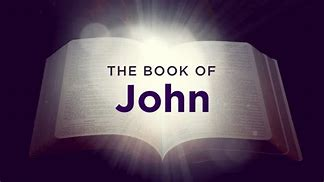Jesus Weeps - {Interlinear <Greek>}
11:28 - • {Καὶ<kai>} When → she → had → said {εἰποῦσα<legō>} this, {τοῦτο <houtos>} she → went {ἀπῆλθεν<aperchomai>} and {καὶ<kai>} called {ἐφώνησεν <phōneō>} her {αὐτῆς<autos>} sister {τὴν ἀδελφὴν<ho adelphē>} Mary, {Μαριὰμ <Mariam>} saying {εἰποῦσα·<legō>} in → private, {λάθρα<lathra>] “The {ὁ<ho>} Teacher {διδάσκαλος<didaskalos>} is here {πάρεστιν<pareimi>} and {καὶ<kai>} is → calling {φωνεῖ<phōneō>} for • you.” {σε.<sy>}
11:29 - And {δὲ<de>} when {ὡς<hōs>} she {ἐκείνη<ekeinos>} heard {ἤκουσεν <akouō>} it, • she → rose {ἠγέρθη<egeirō>} quickly {ταχὺ<tachys>} and {καὶ<kai>} went {ἤρχετο<erchomai>} to {πρὸς<pros>} him. {αὐτόν.<autos>}
11:30 - Now {δὲ<de>} Jesus {ὁ Ἰησοῦς<ho Iēsous>} had → not yet {οὔπω<oupō>} come {ἐληλύθει<erchomai>} into {εἰς<eis>} the {τὴν<ho>} village, {κώμην,<kōmē>} but {ἀλλ᾽<alla>} was {ἦν<eimi>} still {ἔτι<eti>} in {ἐν<en>} the {τῷ<ho>} place {τόπῳ <topos>} where {ὅπου<hopou>} Martha {ἡ Μάρθα.<ho Martha>} had → met {ὑπήντησεν<hypantaō>} him. {αὐτῷ<autos>}
11:31 - When → the {Οἱ<ho>} • {οὖν<oun>} Jews {Ἰουδαῖοι<Ioudaios>} who {οἱ <ho>} were {ὄντες<eimi>} with {μετ᾽<meta>} her {αὐτῆς<autos>} in {ἐν<en>} the {τῇ<ho>} house, {οἰκίᾳ<oikia>} • {καὶ<kai>} consoling {παραμυθούμενοι <paramytheomai>} her, {αὐτήν,<autos>} saw {ἰδόντες<horaō>} Mary {τὴν Μαριὰμ<ho Mariam>} • {ὅτι<hoti>} rise {ἀνέστη<anistēmi>} quickly {ταχέως <tacheōs>} and {καὶ<kai>} go out, {ἐξῆλθεν, <exerchomai>} they → followed {ἠκολούθησαν <akoloutheō>} her, {αὐτῇ,<autos> supposing {δόξαντες<dokeō>} that {ὅτι<hoti>} she → was → going {ὑπάγει <hypagō>} to {εἰς<eis>} the {τὸ<ho>} tomb {μνημεῖον <mnēmeion>} to {ἵνα<hina>} weep {κλαύσῃ<klaiō>} there. {ἐκεῖ.<ekei>}
11:32 - Now {οὖν<oun>} when {ὡς<hōs>} Mary {ἡ Μαρία<ho Maria>} came {ἦλθεν <erchomai>} to where {ὅπου<hopou>} Jesus {Ἰησοῦς,<Iēsous>} was {ἦν<eimi>} and • saw {ἰδοῦσα<horaō>} him, {αὐτὸν<autos>} she → fell {ἔπεσεν<piptō>} at {πρὸς <pros>} his {αὐτοῦ<autos>} feet, {τοὺς πόδας<ho pous>} saying {λέγουσα<legō>} to → him, {αὐτῷ· <autos>} “Lord, {κύριε,<kyrios>} if {εἰ<ei>} you → had → been {ἦς <eimi>} here, {ὧδε,<hōde>} my {μου<egō>} brother {ὁ ἀδελφός.<ho adelphos>} would → not {οὐκ<ou>} have → died.” {ἄν ἀπέθανεν<anapothnēskō>}
11:33 - • {οὖν<oun>} When {ὡς<hōs>} Jesus {Ἰησοῦς<Iēsous>} saw {εἶδεν<horaō>} her {αὐτὴν<autos>} weeping, {κλαίουσαν<klaiō>} and → the {τοὺς<ho>} Jews {Ἰουδαίους<Ioudaios>} who • had come with {συνελθόντας<synerchomai>} her {αὐτῇ<autos>} also {καὶ<kai>} weeping, {κλαίοντας,<klaiō>} he was deeply moved {ἐνεβριμήσατο<embrimaomai>} in → his • spirit {τῷ πνεύματι<ho pneuma>} and {καὶ<kai>} greatly • troubled. {ἐτάραξεν<tarassō>} • {ἑαυτὸν<heautou>}
11:34 - And {καὶ<kai>} he → said, {εἶπεν·<legō>} “Where {ποῦ<pou>} have → you → laid {τεθείκατε<tithēmi>} him?” {αὐτόν;<autos>} They → said {λέγουσιν<legō>} to → him, {αὐτῷ·<autos>} “Lord, {κύριε,<kyrios>} come {ἔρχου<erchomai>} and {καὶ <kai>} see.” {ἴδε.<horaō>}
11:35 - Jesus {ὁ Ἰησοῦς.<ho Iēsous>} wept. {ἐδάκρυσεν<dakryō>}
11:36 - So {οὖν<oun>} the {οἱ<ho>} Jews {Ἰουδαῖοι·<Ioudaios>} said, {ἔλεγον<legō>} “See {ἴδε<ide>} how {πῶς<pōs>} he → loved {ἐφίλει<phileō>} him!” {αὐτόν.<autos>}
11:37 - But {δὲ<de>} some {τινὲς<tis>} of {ἐξ<ek>} them {αὐτῶν<autos>} said, {εἶπον· <legō>} “Could {ἐδύνατο<dynamai>} not {οὐκ<ou>} he {οὗτος<houtos>} who {ὁ<ho>} opened {ἀνοίξας<anoigō>} the {τοὺς<ho>} eyes {ὀφθαλμοὺς<ophthalmos>} of → the {τοῦ<ho>} blind {τυφλοῦ<typhlos>} man ← also {καὶ<kai>} have ← kept {ποιῆσαι<poieō>} this {οὗτος<houtos>} man ← from {ἵνα μὴ<hina mē>} dying?” {ἀποθάνῃ;<apothnēskō>}

Jesus identifies with us in our pain and loss. He comes to us in our weakness and brokenness. Though he knew he was about to raise Lazarus from the dead, Jesus wept when he saw the tears of Mary and her companions. This is Jesus being truly human. As God incarnate, Jesus shows us what he, as God, created man to be—a whole-hearted lover of God and a compassionate lover of fellow image-bearers—summarized in the two great commandments (Matt. 22:34–40).
But as the incarnate God, Jesus’ tears in front of Lazarus’s tomb are of a different order. This is Jesus feeling the weight of the fall—the violation and disintegration of the way things were meant to be. His holy tears are those of the Creator grieving over the forfeiture of beauty through the intrusion of sin and death. Once again, in the incarnate Lord, we see the heart of the Lamb who would offer his life to overcome our sin and death.
References:
All contents are reposted from ESV.org.
“Scripture quotations are from The ESV® Bible (The Holy Bible, English Standard Version®), copyright © 2001 by Crossway, a publishing ministry of Good News Publishers. Used by permission.
All rights reserved.”
Comments